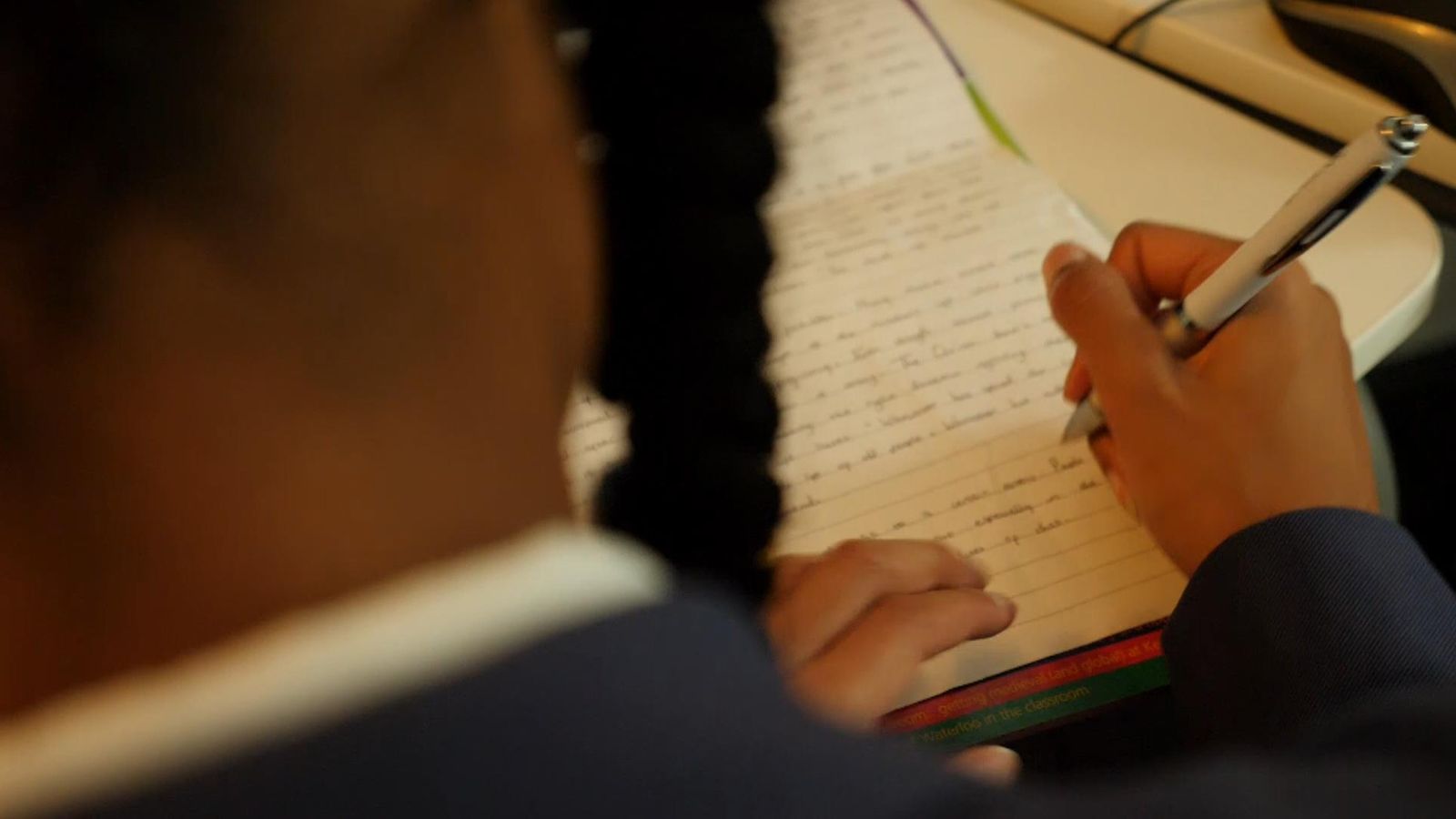Disadvantaged children are the least likely to return to school after lockdown, according to a new study.
A report by the think tank Social Finance found that there was a 25% increase in persistently absent school children.
Average attendance rates have improved since the coronavirus lockdown, but the enthusiasm of some to return to school masks a problem among poorer children.
The figures, which exclude COVID-related absences, show that 1 in 10 children living in the most deprived areas were missing one day a week at school or more.
Most persistently absent pupils (61%) were either on free school meals, in contact with social services, or had special educational needs.
Sara Parsonage, a director at Social Finance told Sky News, “There is concern that lower school attendance and new trends in exclusions after lockdown could link to experiences of ‘hidden harms’ such as domestic abuse, parental or child mental health or wider impacts of poverty and digital exclusion.
“The key concerns we’ve found are that the children who are most persistently absent are the children we should be most worried about. These children are invisible, and we need to make them visible.”
Kiran Gill, CEO of education charity The Difference, said: “New analysis points out the children most at risk of slipping out of education are those who not only live in poverty but may also have had a social worker because life outside school is unsafe.”
The study was conducted among nearly 17,000 students in Cheshire West and Chester – and supports what headmasters are seeing anecdotally in many areas of the country.
Some headteachers in London are so concerned, they have formed a new group to tackle the problem.
David Boyle, CEO at Dunraven School, is part of an initiative called Reconnect London, which he says was formed after discovering the capital was at the bottom of the attendance register.
He told Sky News: “At heart it has to be about the relationships that the young people feel they have with trusted adults in school. I think if those relationships exist, if the adults in school know how to develop those relationships and engage with those young people, you’ve got a much better chance of getting them in.”
Dunraven School has its own safety net called The Base. It’s a private study area within the school grounds for children who are at risk of dropping out.
Year 7 student Jack Cook, who is using the space, told Sky News: “I’m here because I was struggling to go to school, and I was out of lessons a lot.”
Jack says he didn’t adjust well with the move from primary to secondary. He’d struggled to make new friends and preferred lockdown classes.
He said: “I prefer the work at home sitting on the computer doing it, I think it’s when I’m there in real life I start getting stressed out and anxious.”
Please use Chrome browser for a more accessible video player
Year 11 student Czarleen Nercua came to The Base because she was having panic attacks in class.
The 16-year-old said: “Being forced to stay at home 24/7 – it’s basically flared up my anxiety. You feel trapped because there is no one to distract you.
“But coming back to school, sometimes it can feel overwhelming, because you’ve been by yourself for so long.”
Maxine Clarke, who runs The Base at Dunraven School, told Sky News: “There are students, school-wide, who have found it very, very difficult to come back to school and, at the moment, we are contacting those families.
“I can give you my theory – they are really struggling to get students out of bed – they have lost their sense of purpose. I think another thing – they have been staying up very, very late. They’ve got into this pattern of being so much on their phones or game-playing with other people – that’s been their form of contact.”
Please use Chrome browser for a more accessible video player
Subscribe to the Daily podcast on Apple Podcasts, Google Podcasts, Spotify, Spreaker
It has always been children from disadvantaged backgrounds who are most likely to skip school – what this report shows is that that problem has become more pronounced.
Lockdown has widened that attendance gap, so those kids on the fringes are falling further away.
The report authors say government focus should not just be on catching up, but also supporting those at risk of falling out of education.






















